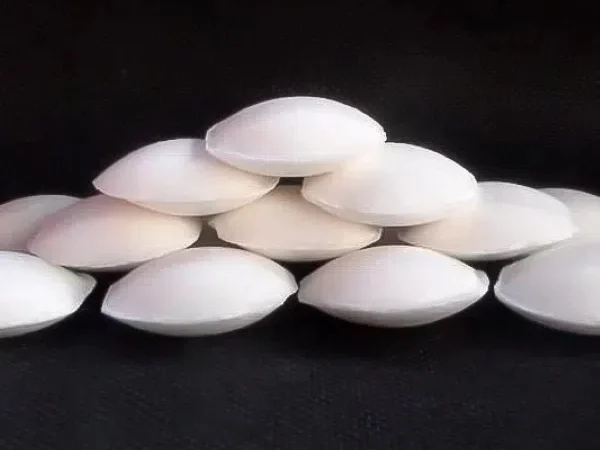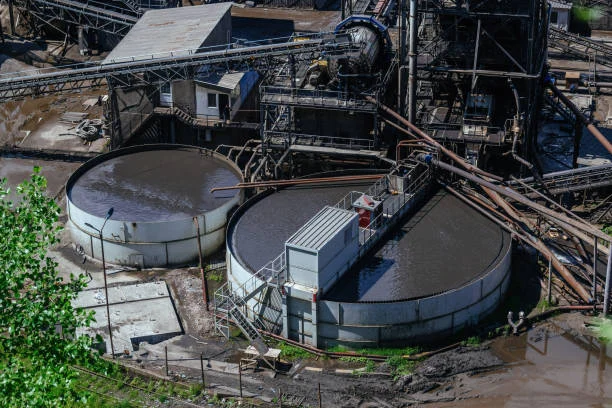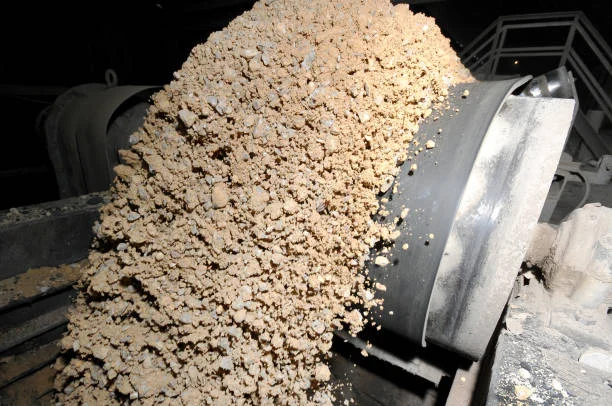
Sodium cyanide, with the chemical formula NaCN, is a compound that has garnered significant attention due to its high toxicity. However, it also plays crucial roles in various industries. This article delves into the multifaceted uses of Sodium cyanide across different sectors.
1. Mining Industry
Gold and Silver Extraction
One of the most well - known Applications of Sodium Cyanide is in the extraction of gold and silver from their ores. This process, known as cyanidation, relies on the ability of cyanide ions to form stable complexes with gold and silver. In the presence of oxygen and water, gold metal undergoes oxidation and dissolves in the cyanide solution, resulting in the formation of a gold - cyanide complex. This method is highly efficient and has been the standard for gold and silver mining for many years. It enables the recovery of precious metals from low - grade ores, which might not be economically viable to process using other methods. For example, in large - scale gold mines around the world, sodium cyanide is used in vast quantities to extract gold. In some African and South American mines, thousands of tons of ore are treated with cyanide solutions daily to obtain small amounts of gold.
Other Metal Processing
Sodium cyanide is also used in the separation and purification of other metals such as copper, zinc, and nickel. During these processes, cyanide can selectively bind with certain metals, allowing for their separation from impurities or other metals in the ore. For instance, in the copper - Mining industry, cyanide can be used to separate copper from other associated metals in the ore body. This is achieved by adjusting the pH and the concentration of the cyanide solution to target specific metal - cyanide complex formations.
2. Electroplating
In the Electroplating industry, sodium cyanide is a key component in the plating bath. It facilitates the deposition of metals such as copper, silver, cadmium, and zinc onto various substrates. Cyanide ions in the plating solution function as complexing agents. They form complexes with metal ions, which helps in controlling the rate of metal deposition. As a result, a more uniform and adherent metal coating is achieved on the surface of the object being plated. For example, in the production of high - quality jewelry, electroplating with silver or gold often involves the use of cyanide - based plating solutions. The presence of sodium cyanide ensures that the precious metal is deposited evenly, giving the jewelry a smooth and lustrous finish. In the automotive industry, parts such as bumpers and decorative trims are often electroplated using cyanide - containing solutions to improve their appearance and corrosion resistance.
3. Chemical Synthesis
Production of Organic Compounds
Sodium cyanide is an important reagent in organic synthesis. It can be used to introduce the cyano group (-CN) into organic molecules. This is a crucial step in the synthesis of many organic compounds, including nitriles, which are versatile building blocks in organic chemistry. For example, in the production of acrylonitrile, which is used to make synthetic fibers like acrylic and modacrylic, sodium cyanide can be used in one of the reaction steps. The reaction between a suitable organic halide and sodium cyanide leads to the formation of a nitrile through a nucleophilic substitution reaction.
Synthesis of Pharmaceuticals and Agrochemicals
In the pharmaceutical industry, sodium cyanide is used in the synthesis of several drugs. For instance, it is involved in the production of certain antibiotics, vitamins, and anti - inflammatory drugs. In the synthesis of vitamin B12. cyanide is used in the preparation of key intermediate compounds. In the agrochemical field, sodium cyanide is used in the manufacture of pesticides and herbicides. Some insecticides and fungicides contain structures that are derived from reactions involving sodium cyanide. These chemicals help in protecting crops from pests and diseases, thus increasing agricultural productivity.
4. Other Applications
Rodent Control
Due to its extreme toxicity, sodium cyanide has been used as a rodenticide. It can be used to control populations of rats, mice, and other rodents. However, its use in this context is highly regulated due to the potential risks it poses to non - target species and the environment. In some areas where rodent infestations are severe and other control methods have proven ineffective, sodium cyanide - based baits may be used under strict supervision. The rodents consume the bait, and the cyanide quickly acts on their nervous systems, leading to death.
Metal Cleaning and Polishing
Sodium cyanide can be used in metal cleaning and polishing operations. It helps in removing oxides and other surface contaminants from metals. In the case of certain metals, the cyanide can react with the surface impurities, forming soluble complexes that can be easily washed away. This process is especially useful for preparing metal surfaces for further processing, such as painting or bonding. For example, in the aerospace industry, before certain metal components are painted or joined together, they may be treated with solutions containing sodium cyanide to ensure a clean and smooth surface.
In conclusion, sodium cyanide, despite its toxicity, has a wide range of applications in various industries. From the extraction of precious metals in mining to the synthesis of vital pharmaceuticals, its uses are diverse and significant. However, due to its hazardous nature, strict safety and environmental regulations are in place to ensure its proper handling, storage, and disposal.
- Random Content
- Hot content
- Hot review content
- Reagent Grade/Industrial Grade Hydrochloric Acid min.31%
- High Quality Sodium silicate 99% Water glass
- Ammonium Chloride 99.5% Mining Collector
- Cyanoacetic acid 99% Powder
- Sodium Metasilicate Pentahydrate
- Di(ethylene Glycol) Vinyl Ether
- Sodium Dimethyldithiocarbamate 95% solid, 40% liquid
- 1Discounted Sodium Cyanide (CAS: 143-33-9) for Mining - High Quality & Competitive Pricing
- 2Sodium Cyanide 98% CAS 143-33-9 gold dressing agent Essential for Mining and Chemical Industries
- 3China's New Regulations on Sodium Cyanide Exports and Guidance for International Buyers
- 4International Cyanide(Sodium cyanide) Management Code - Gold Mine Acceptance Standards
- 5China factory Sulfuric Acid 98%
- 6Anhydrous Oxalic acid 99.6% Industrial Grade
- 7Soda Ash Dense / Light 99.2% Sodium Carbonate Washing Soda
- 1Sodium Cyanide 98% CAS 143-33-9 gold dressing agent Essential for Mining and Chemical Industries
- 2High Purity · Stable Performance · Higher Recovery — sodium cyanide for modern gold leaching
- 3Sodium Cyanide 98%+ CAS 143-33-9
- 4Sodium Hydroxide,Caustic Soda Flakes,Caustic Soda Pearls 96%-99%
- 5Nutritional Supplements Food Addictive Sarcosine 99% min
- 6Sodium Cyanide Import Regulations & Compliance – Ensuring Safe and Compliant Importation in Peru
- 7United Chemical's Research Team Demonstrates Authority Through Data-Driven Insights












Online message consultation
Add comment: